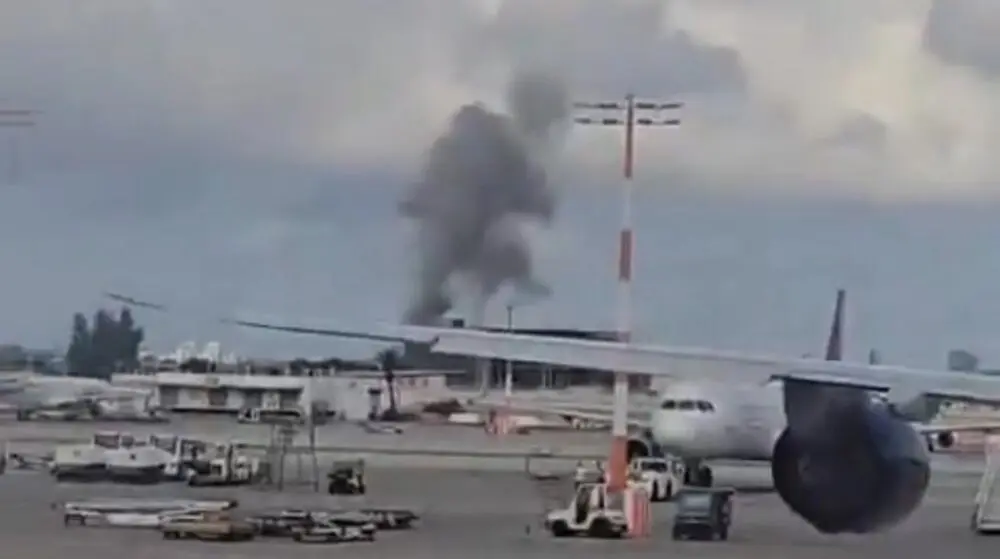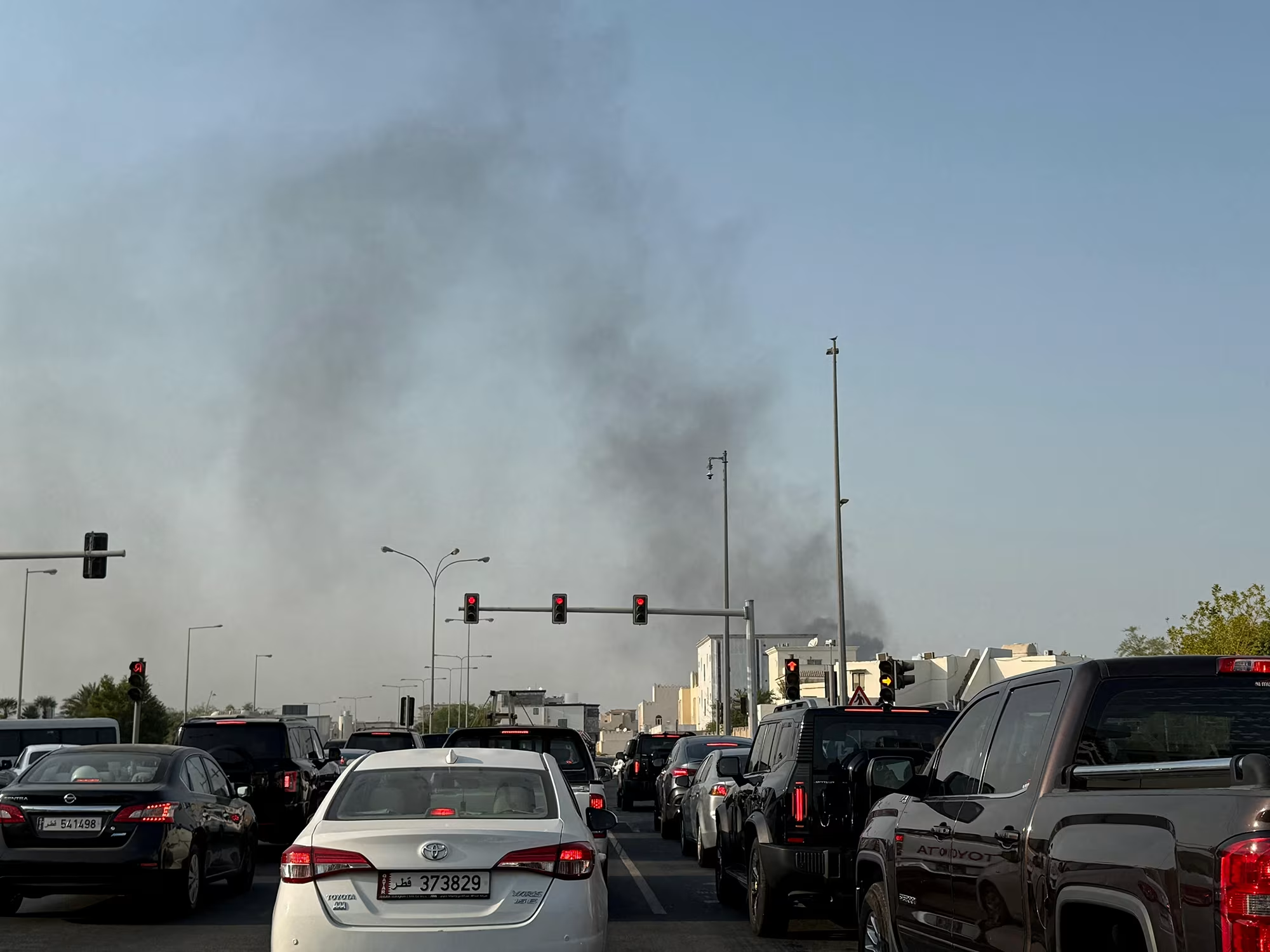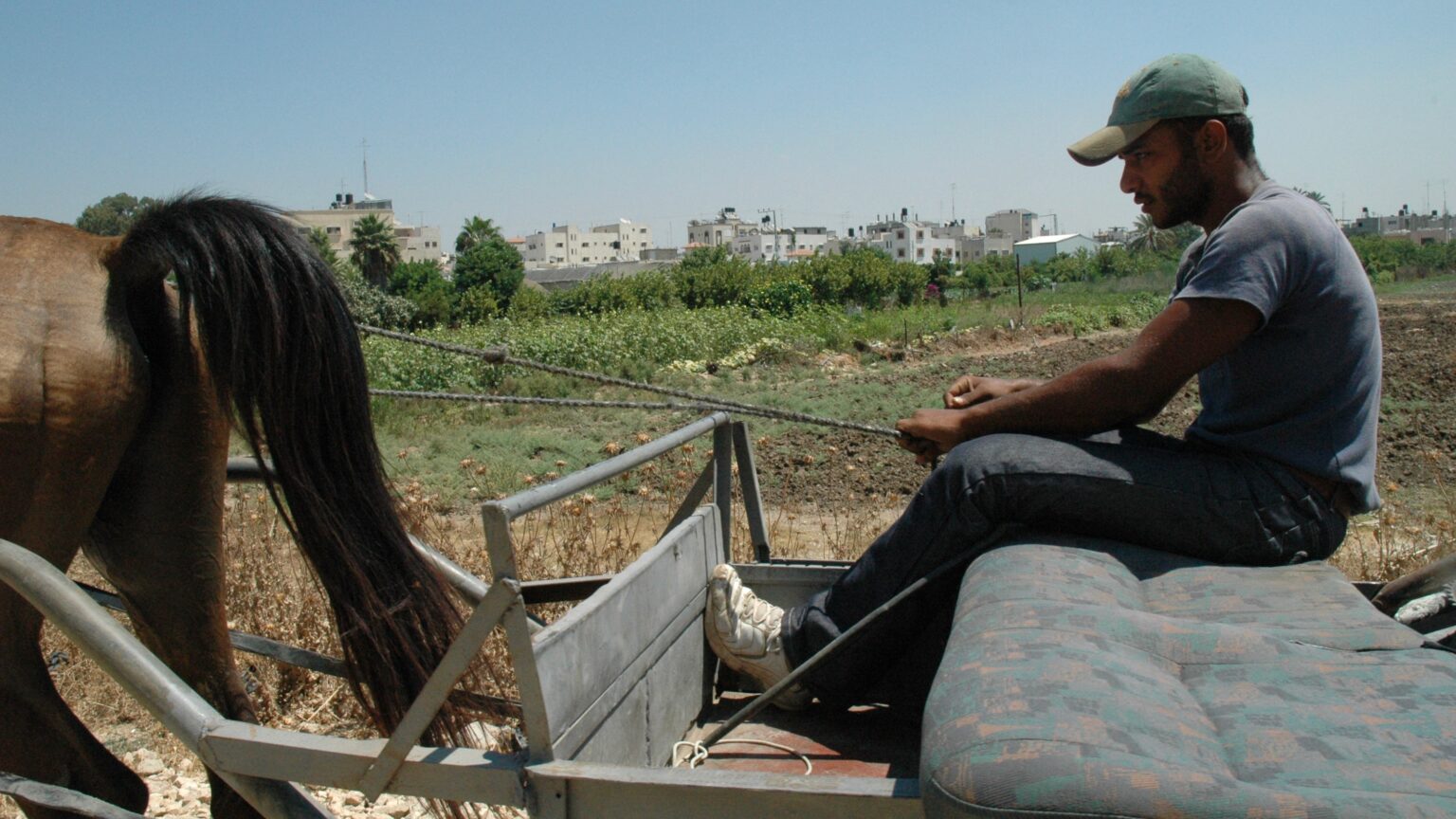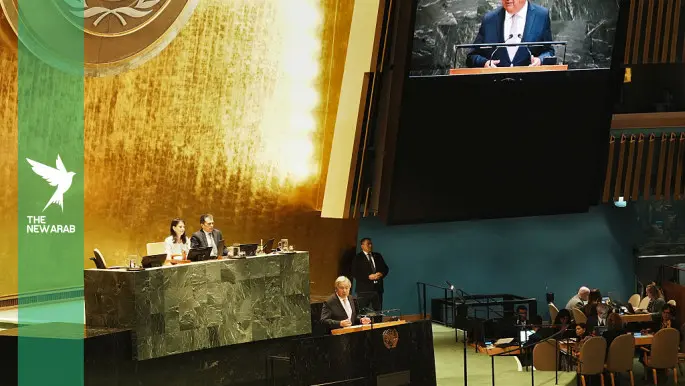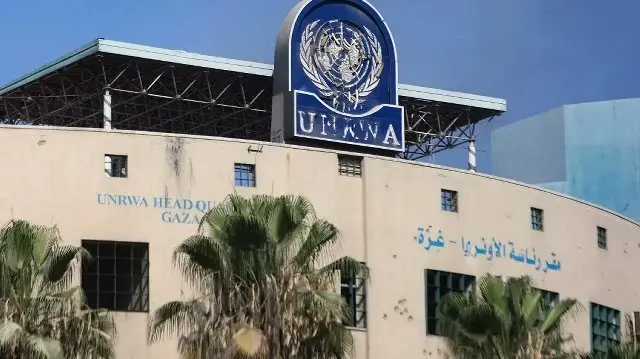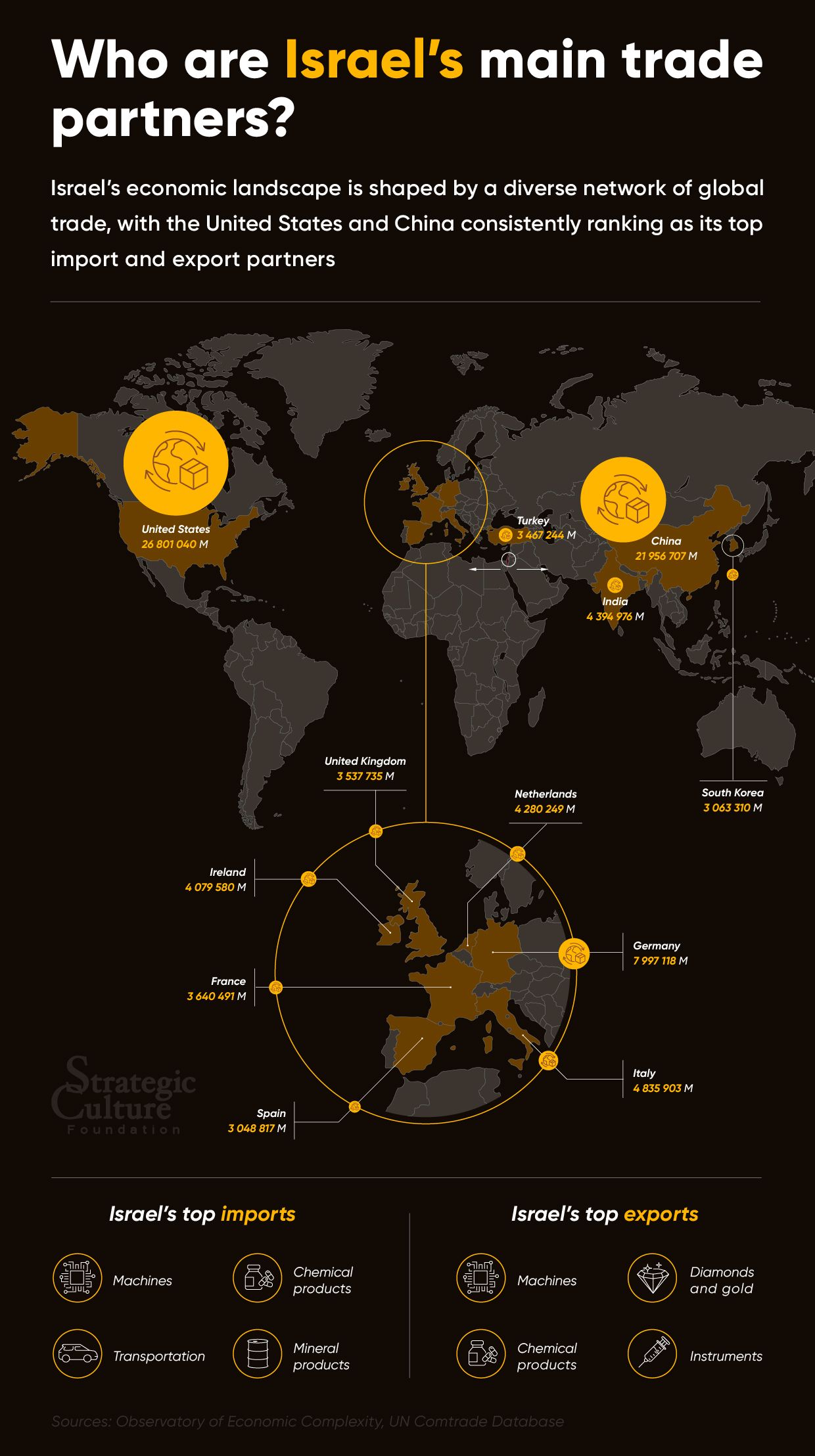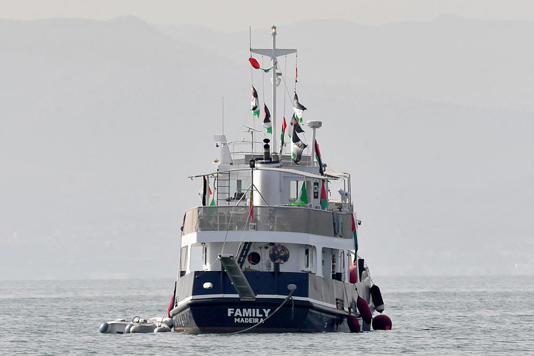Israel has killed over 1,000 Palestinians in the last three weeks as it prepares for its massive assault to occupy Gaza City
News Desk
SEP 5, 2025

(Photo credit: AP)
Israel’s genocidal war against Palestinians entered its 700th day on 5 September, as Tel Aviv continued preparations for a massive assault to occupy Gaza City.
At least 44 people have been killed by Israeli attacks across Gaza since dawn on Friday.
According to Al-Jazeera’s correspondent, Israeli troops have reached the heart of Gaza City. Several people were killed in different areas of the city, including children, as Israeli warplanes struck residential buildings and apartment blocks.
Meanwhile, Israeli forces continued to operate on the ground, with tanks and troops advancing further into Gaza City’s Sheikh Radwan neighborhood on Friday as part of an effort to destroy infrastructure ahead of the major assault.
Palestinians marked the 700th day of genocide by fleeing westward after receiving displacement orders from the Israeli army.
Thousands have been forced to flee in recent days, while thousands of others have decided to stay despite the risk of death.
Gaza’s Government Media Office said on Friday that in the last three weeks, Israeli forces have killed 1,100 people and have detonated more than 100 explosive-laden robotic vehicles in civilian homes in Gaza City.
“We strongly condemn these crimes and hold the Israeli occupation, the US administration, and the states involved in the genocide fully responsible,” it added.
The Israeli army says it currently controls 40 percent of Gaza City, and will expand strikes and ground operations in the coming days ahead of the full assault.
The military claims that Hamas snipers and anti-tank units are posted inside multistory buildings in Gaza City, and added that it will target these buildings in the coming days.
“The bolt is now being removed from the gates of Hell in Gaza. Once the door is opened, it will not be closed, and IDF operations will intensify – until Hamas’s murderers and rapists accept Israel’s conditions for ending the war, first and foremost the release of all hostages and disarmament – or be destroyed,” Israeli Defense Minister Israel Katz said earlier on Friday.
Israel’s five conditions for ending the war are the release of all captives in one go, the disarmament of Hamas, the demilitarization of Gaza, Israeli security control in Gaza, and “the establishment of an alternative civilian administration that does not indoctrinate for terror, does not dispatch terror, and does not threaten Israel,” Israeli Prime Minister Benjamin Netanyahu’s office said this week.
https://thecradle.co/articles/gaza-geno ... splacement
Dozens of settlers 'armed with sticks and knives' rampage through West Bank village
The Masafer Yatta region in the south Hebron hills continues to come under violent settler attacks aimed at uprooting Palestinians from the area
News Desk
SEP 5, 2025

(Photo credit: Shai Kendler)
Illegal Israeli settlers backed by occupation forces carried out violent attacks against Palestinians in the occupied West Bank on 5 September, as troops carried out arrests across the territory.
Settlers stormed the town of Khirbet Khallet al-Dabaa in Masafer Yatta in the south Hebron hills. The area has come under attack repeatedly in recent months, and Palestinians are regularly pushed out of their homes.
Israeli military forces have destroyed most of the civilian infrastructure in the town.
Around 30 settlers took part in the latest attack. At least 20 residents of Khirbet Khallet al-Dabaa, among them children and the elderly, were injured.
The settlers were “armed with sticks and knives,” said Hassan Mleihat, general coordinator of the Al-Baydar Organization for the Defense of Bedouin Rights.
He described the attack as part of a broader “settler campaign to terrorize Palestinians out of their land."
Masafer Yatta has come under increased attacks by settlers under the protection of the occupation forces, with the aim of expulsion and demolition.
Communities that remain at risk in Masafer Yatta were first handed an eviction notice and expelled in 1999, and told that their villages had been declared a military training zone, which the military declared “Firing Zone 918.”
Meanwhile, Israeli forces carried out several arrests south of Hebron and in Nablus.
As Israeli settler attacks continue to escalate, Israeli forces continue the forced displacement campaign they launched in several West Bank cities and camps earlier this year.
Residents of the Abu Safiya neighborhood, adjacent to Tulkarem refugee camp, were forced to evacuate their homes on Thursday.
Tens of thousands of Palestinian civilians have been uprooted from Tulkarem and Jenin this year. The Israeli army continues to demolish infrastructure in the cities’ main camps.
Israel has rapidly accelerated settlement expansion and plans to illegally annex the occupied West Bank as a response to the recent revival of the idea of Palestinian statehood and France’s vow to recognize a state of Palestine at the UN this month.
Israeli Finance Minister Bezalel Smotrich called on 3 September for Israeli Prime Minister Benjamin Netanyahu’s government to annex 82 percent of the occupied West Bank, home to around three million indigenous Palestinians.
Last month, Smotrich announced an unfreezing of the E1 settlement project, which has been frozen for decades as a result of strong opposition from the international community.
It aims to link occupied East Jerusalem – viewed as integral to any future Palestinian state – to the illegal Maale Adumim settlement.
“Today, anyone in the world who tries to recognize a Palestinian state will receive an answer from us on the ground. Today we are writing a historic chapter in the story of the redemption of the people of Israel in their land,” the finance minister said at the time.
In late July, lawmakers in Israel’s Knesset voted 71-13 in favor of a motion calling for “applying Israeli sovereignty to Judea, Samaria and the Jordan Valley.”
https://thecradle.co/articles/dozens-of ... nk-village
******
Could Israel be so reckless to scupper such a momentous deal as its own normalisation with the UAE, Bahrain, Sudan and Morocco?
As far as cunning plans go, Israel’s claim that it will annex 80 percent of the West Bank is as bold and as whacky as it gets. But will it work? And perhaps more to the point, is it a threat that they intend to go through with, or is it simply a bluff?
The West Bank often is underreported and rarely gets the media oxygen it deserves. Some might be forgiven that this latest announcement of Israel’s extreme right ministers of intending to annex the West Bank is out of the blue. In fact, the Israelis have been considering the plan for quite some time. If it weren’t for the Hamas attack of October 7th 2023, a longer, more measured policy of allowing settlers to do it for them – with the occasional days of military intervention – might have done the job. Some might even argue that the land grabs and the dirty work of armed settlers there stealing houses and land played a key role in the Hamas attack. But the truth is that the idea is nothing new and that Israel has wanted all along to take more land and control of West Bank and now it has the perfect pretext to do it.
The timing of this announcement is worth a second look. If we are to consider that Israel has made many victorious moves in recent months – decapitating Hezbollah in Lebanon, inheriting Syria and carrying out what some western analysts consider to be a successful strike against Iran – then it is fair to say that the confidence level of Netanyahu and his cronies is at an all time high. The hardcore fanatics on the right will be pushing for him to go ‘all out’ with both Gaza and the West Bank, given that they have Trump in the White House and they might consider anything is possible, given his ignorance and servitude. Let’s take West Bank.
Yet it’s the recent move by a number of EU countries to recognize Palestine which is the driving force behind the stunt. Even though the votes at the UN will be unprecedented as France, the UK, Portugal, Canada and Australia push for the recognition of Palestine, the move will still be blocked by the U.S. – yet the symbolism will still mean something in Palestine’s long road towards having its own state. Israel must teach the Europeans a lesson and the West Bank plan, although quite crude, will be effective in doing that: you push for a Palestinian state, we’ll create our own state in West Bank.
The Israelis probably believe that all it will take is for one of these western countries to retract their zealous plan to support the Palestinian statehood idea and it will fall like a house of cards. They might well be banking on the UK being the weakest link here as even Keir Starmer’s most ardent supporters are doubtful whether he will even stick with his so-called threat of supporting the vote for Palestinian statehood. His record of flip-flopping is unprecedented after all.
Perhaps this is the thinking of sending Israel’s President Isaac Herzog to visit Starmer in London on the coming days.
Yet like nearly everything that Israel does, there appears to be no long-term strategizing. As always, the Zionist entity works on a day-to-day basis and takes each day as it comes. For just as they figure that the West has its weak point – West Bank annexation – they too have their own Achilles heel which the UAE elite know only too well. Just as quickly as the plan was announced in western media, UAE officials were quick to warn that this would be a ‘red line’, hinting that the present Abraham Accords which Abu Dhabi signed up to, would be in tatters if they were to go ahead with it. Could Israel be so reckless to scupper such a momentous deal as its own normalisation with the UAE, Bahrain, Sudan and Morocco – while Saudi Arabia and consider joining also – for a token victory over a handful of EU countries and their disingenuous political posturing? Unlikely.
The reality is that the scam which Israeli is trying to pull off is a massive bluff which can easily backfire. While it has won the ‘war’ in Gaza on many levels and is achieving its objectives in West Bank it has lost the media war as hundreds of millions of people around the world simply cannot accept the level of biblical depravity the savages in power in Israel have sunk to with the genocide and ethnic cleansing which is going on in both Gaza and West Bank. An entire generation which has seen the Hollywood portrayal of the Holocaust in such films as Schindler’s List and believe they got their heads around what the Nazis did in WWII cannot understand the horrors of bombing women and children in tents or starving them to death. It simply goes over a line of rationale comprehension and has shown the world what Israel is actually capable of and the West Bank ruse is really an example of how poorly attuned Netanyahu and his cabal are to how the world sees them and how western media no longer has the power that it had twenty years ago when Israel pulled out of the Gaza Strip.
https://strategic-culture.su/news/2025/ ... with-west/
******
Patrick Lawrence: The State of the ‘State of Palestine’
September 5, 2025
Shares
The upcoming United Nations General Assembly may show whether those nations who have pledged to support a Palestinian state really mean business.

United Nations General Assembly Hall in the UN Headquarters, New York, in 2011. (Basil D Soufi/ Wikimedia Commons/ CC BY-SA 3.0)
By Patrick Lawrence
ScheerPost
United Nations General Assembly sessions, held each September since 51 nations convened in a Methodist church hall in London in 1946, come and go and mostly go without event.
The General Assembly is set to begin its 80th session come Sept. 9 and it is difficult to imagine this one will go off uneventfully. To put the point simply, Israel has murdered, starved and terrorized too many Palestinians for this year’s gathering at the Secretariat in Manhattan to conclude without some conclusions. It remains only what these conclusions will be.
Several weeks ago a group of 15 nations — among them prominent members of the Atlantic alliance — stated their intention to announce their formal declaration of Palestinian statehood at this year’s session. This sets up various of Israel’s most important supporters for what is likely to prove a messy confrontation with “the Jewish state” and naturally, the United States as Israel’s unfailing backer.
This is not guesswork. It is already evident these new recognitions will dominate the Assembly session. Since the 15 nations declared their intent to recognize Palestine as a legitimate state, the Israelis have announced plans to mount a major new operation in Gaza City.
On Aug. 25, the Zionist military staged one of those disgusting “double tap” attacks — strike, then strike again as rescue workers and journalists arrive — on a hospital in southern Gaza, killing 20 people and raising the death toll among journalists to 247. Less than a week later, Israel began the large-scale attack on Gaza City it had previously announced — an act of sheer defiance and impunity.
Never to be outdone when an opportunity for outrage arises, the State Department announced Friday it will deny visas to all Palestinian officials who had planned to attend the General Assembly travel to the Secretariat — this “for undermining the prospects for peace.”
I used the term “disgusting” in the above paragraph. This also qualifies, given the United States committed to allowing diplomats free access to diplomatic proceedings when it was agreed to locate the Secretariat on American soil.
There is now talk of holding this year’s General Assembly in Geneva so that Palestinian representatives could attend. This will not happen, but the thought is a measure of the international mood.
I see only two likely outcomes as this storm gathers. In one, the better of the two, France, Britain and other pillars of the Western alliance will back their honorable diplomatic shifts with substantive action against the Zionists’ terror campaigns and rampant breaches of international law.
That would change the diplomatic landscape significantly. In the other, these nations will do nothing, decisively discrediting their position on the Israel–Palestine question while putting the U.N.’s impotence on pitiful display. There will be no coming back from this latter eventuality.
The question of power arises.
If you do not know the flaw in the U.N. Charter that effectively disempowers the General Assembly, you should: Executive authority lies in the Security Council, whose permanent members hold veto power. Only the Council can pass legally binding resolutions and determine measures to enforce them. Apart from quotidian matters to do with housekeeping — the U.N.’s budget and so on — the Assembly is limited to voting on nonbinding resolutions.
OK, the Security Council is where the U.N. gets things done, or doesn’t, as is too often the case. You could argue that the General Assembly serves as a sort of suggestion box for what are now the U.N.’s 193 members, but this is to say nothing of note ever occurs in the Assembly and that is simply not the case.
I expect things of note this year. I cannot yet surmise whether these will prove things-of-note-honorable or things-of-note-disgraceful.
A little history, maybe, to help U.N. skeptics.
Fidel Castro, a year and nine months in power, addressed the General Assembly in September 1960. The U.N. asks members to limit their time at the podium to 15 minutes; the fiery Fidel spoke for four hours, a nonstop rip into the history of U.S. imperialism and its abuses of Cuba since the 1959 revolution.
The U.N. calls Castro’s speech “epic” and a “pivotal moment.” These are fair descriptions, in my view: It was an early announcement that Latin America intended thenceforth to speak up and stand up to los norteamericanos, just as it then learned to do.

Yasir Arafat speaking at the United Nations General Assembly in 1974. (Library of Congress/ Wikimedia Commons)
Fourteen years later, Yasser Arafat delivered that famous speech to the General Assembly while wearing a pearl-handled revolver at his hip. The Assembly then passed two resolutions, 3236 and 3237, the former putting “the Question of Palestine” formally on the U.N.’s docket and the latter granting the Palestine Liberation Organization diplomatic recognition by way of observer status.
A year after that came General Assembly Resolution 3379, which “determines that Zionism is a form of racism and racial discrimination.” It took the Israelis and Americans until 1991 to coerce a vote to repeal 3379. (I wonder how another vote now would turn out.)
Closer to our time, it was but a dozen Septembers ago that Hassan Rouhani, who had assumed Iran’s presidency just a few months previously, addressed the General Assembly and stunned us all when he extended his hand Westward to propose negotiations with the Americans and Europeans to limit the Islamic Republic’s nuclear programs.
Pivotal, I would say. The agreement reached two years later endured until the beyond-belief Dummkopf who now serves his second term as president withdrew the United States from it.
And so to General Assembly No. 80, which is to run three weeks and conclude Sept. 29.
There is no question of this year’s session voting to send Blue Helmets into Gaza and the West Bank to protect Palestinians from the Zionist state’s daily terrors, or that it will impose an appropriately unbearable regime of sanctions against said entity, or that U.N. peacekeepers will surround and embargo all those illegal West Bank settlements. One wishes it would but it cannot, as just noted.
No, I argue that the diplomacy that has taken place in the runup to this year’s General Assembly is significant and that diplomacy — all the discredit the Western powers have brought upon it in recent years notwithstanding — still comes with consequences, at least sometimes, and we will see consequences of one or another kind next month.
Before going any further we interrupt this program with an important question, trivia-like but not trivial. Will Bibi Netanyahu attend this year’s General Assembly? He customarily does, rarely missing a chance to denounce the Assembly and the whole wide world represented there as a horror show of anti–Semites — his murderers-as-victims act. But this repulsive man is wanted under international law for alleged war crimes and crimes against humanity.
However this turns out, it will be notable either way. If Netanyahu walks the halls of the Secretariat next month we will have to accept the near-total impotence of the courts that adjudicate international law; the Western powers will have completed their disemboweling of another of the institutions that mark out our international public space.
If Bibi stays away, well, we will be pleased to say international law counts for something after all, and we can look to bigger things from there.
As widely reported in recent weeks, Israel’s starvation operation in Gaza, which began March 2, has proved a barbarity too far, and it has been in consequence that numerous Western nations — “even Israel’s longtime allies,” as Western media like to exclaim — have pledged to recognize Palestinian statehood at this year’s Assembly. A document known as the New York Call, signed July 29, commits the 15 above-noted nations to formal recognition.
These 15 will join 147 U.N. members that have already recognized Palestine as a legitimate state, some going back to the 1990s. But this is more than a matter of numbers. Finland, Ireland, Luxembourg, Norway, Portugal: These are among the signatories of the New York Call, and good enough.
The bigger deal here lies in the bigger names: France, Britain, Canada, New Zealand and, as of Aug. 11, Australia. The first two of these count among what people of a certain age commonly call the major Western powers. Turning this another way, the whole of the Anglosphere other than the United States — and the whole of the Security Council, too — is about to commit to recognizing Palestine.
So what? It is our obvious question.
“It’s important to recognize the state of Palestine,” Francesca Albanese — the United Nations special rapporteur on the occupied Palestinian territories — said in an interview with The Guardian published Aug. 13. “It’s incoherent that they’ve not done so already.”

Francesca Albanese in July 2024. (Esquerda.net/Wikimedia Commons/CC BY-SA 2.0)
“Incoherent” is a well-chosen word, but that is only part of the argument Albanese makes. Her bigger, passionately stated point is that stopping the genocide in Gaza and the ethnic cleansing in the West Bank remain the No. 1 imperative, and we ought not consider the doings at the General Assembly as more than a step toward this.
This is precisely how one should spectate the General Assembly’s proceedings in a few weeks’ time.
OK, the majority of the Western powers save the United States will go on the record in support of a Palestinians state. What will they make this mean on the ground?
There is plenty to suggest as little as possible. If this proves the case, the significance of the General Assembly this year will lie in the demonstrated insignificance of the General Assembly. But let us reason the matter out before drawing conclusions.
Straight off the top, the United States has already made it plain it stands against these various pledges to recognize. On Aug, 25, Washington’s just arrived ambassador to Paris, Charles Kushner, published an open letter to Emmanuel Macron complaining of “the dramatic rise of antisemitism in France” and asserting that the French president’s decision to recognize Palestine will “embolden extremists, fuel violence, and endanger Jewish life in France.”
Kushner, an assertive Zionist whose son Jared is married to Trump’s daughter Ivanka, is plainly playing the tiresome old antisemitism card, just as Netanyahu has done in response to the New York Call. Both seem especially sensitive to the French, and for good reason.
French President Charles de Gaulle, a strong supporter of Israel at its founding in 1948, turned against it after the Six–Day War in 1967. He soon barred French arms sales, backed a Palestinian state and called Israel’s occupation of land seized in the war an imperialist adventure.
Macron, let us not forget, has long nursed dreams of Gaullist grandeur. The General Assembly offers him a superbly dramatic opportunity to strut his stuff in this line, and it will be interesting to see if he does. (I am not offering odds on this one.)
The wayward Macron aside, the signatories of the New York Call document will effectively widen the already evident rift in the trans–Atlantic alliance when they declare their support for Palestinian statehood in a couple of weeks.
As Britain, France and the others cannot possibly miss this point, we can conclude that the Europeans are now willing very gradually to assert their autonomy in matters of state after eight decades of subservience to the United States. (I will have more to say on this point in another column.)
Beyond this, those newly committed to recognition now risk falling into a hole they have themselves dug. You cannot be surprised if this turns out to be the case, given how practiced the Euros are at this. They tumble into one called “Ukraine” as we speak.
In the case of Israel and Palestine, the about-to-recognize nations now face themselves with but one choice: They either signal at the General Assembly they intend to take the kind of action recognition implies, or impotence and fecklessness will mark them more or less indefinitely.
John Whitbeck, the international attorney long engaged on the Palestine question, put it as follows on Aug. 13 in his privately circulated blog. I admire the lateral thinking here:
“It would be intellectually and diplomatically incoherent to extend diplomatic recognition to a state, particularly when its entire territory is illegally occupied by another state, and then not to take meaningful and effective actions to end that occupation — and, if important Western states like France, Britain, Canada and Australia, as well as other Western states, all extend diplomatic recognition to the State of Palestine next month, principles-based courage may be more easily found in numbers.
In addition, after imposing more than 20 rounds of sanctions on Russia, explicitly with a view to collapsing its economy, for occupying a relatively modest portion of a state that they recognize, how could Western governments justify to their own increasing horrified people imposing no sanctions at all against a country which is occupying the entire territory of a state that they recognize and which is publicly proclaiming its intention to intensify its ongoing genocide of that state’s people?”
Principles-based courage: I share John Whitbeck’s thought, if not as confidently, that such virtue hangs delicately in the balance as the General Assembly opens. I am simply not in the habit of putting “principles” and “courage” in the same paragraph as “Western states like France, Britain, Canada and Australia.”
There is a depressing possibility that the big event at the General Assembly next month may consist of Western nations other than the United States embarrassing themselves on a grand scale.
For one thing, the New York Call and various statements individual nations have made declare, no exceptions, support for a two-state solution, a Palestinian nation next to an Israeli nation (or a Jewish nation, as the Zionists have it).
This is simply impossible — impossible because all that is left for the Palestinians by way of land are dots on maps in the fashion of Bantustans, impossible because the Israelis are perfectly clear they will not accept a Palestinian state, impossible because (this from accounts I hear from the West Bank) the escalating savagery and sadism of Israeli soldiers and settlers has in all likelihood rendered coexistence beyond reach.
What are you doing when you declare support for something that will never come to be? Supporting something while supporting nothing? There is an argument that the raft of new recognitions is, indeed, nothing more than performative, an exercise in sheer cynicism.
For another, the major signatories of the New York Call document, notably Britain, France and Australia, have been suppressing popular support for the Palestinian cause from the first days after the events of Oct. 7, 2023.
Nowhere is this contradiction more graphic than in the British case. On Aug. 9, the London police arrested 532 demonstrators for supporting Palestine Action, a group dedicated to nonviolent action against the genocide in Gaza. Palestine Action is now designated a terrorist organization; those arrested in Parliament Square are charged under the U.K.’s Terrorism Act of 2000 and face up to 14 years in prison.

A Palestine Action sticker seen in Norwich, Norfolk, England, UK, in 2023. (Leo Reynolds/ Flickr/ CC BY-NC-SA 2.0)
And this is the same Britain that pledges to recognize the state of Palestine at the General Assembly in a few weeks’ time? It simply does not square.
But rank hypocrisy of the usual sort is too easy an explanation for this kind of thing. Since Israel’s starvation operation began producing page 1 photographs a few weeks back, Western leaders other than Donald Trump and his crew of misfits have been acutely aware that they will enter the record on one side or the other of this human atrocity.
There are memoirs to write; the historians hover. Stretching the point and I am having a hard time finishing this sentence but I must — John V. Whitbeck’s “principles-based courage” may indeed figure in the proceedings at the U.N. Secretariat next month.
To my mind, those 500-plus people arrested in the London protest make the best case that substantive action may follow the coming spree of diplomatic recognitions. They will not be the last 500 to hit the streets, after all. Public disgust with the Israelis is obviously on the rise.
Given that those purporting to lead the Western post-democracies have corrupted the institutions intended to express the popular will, the prospect of widespread unrest will be very real to them — a threat to these elites, a source of promise for the rest of us.
Let us not forget the incessant demonstrations of the 1960s and 1970s. The Vietnamese won the Vietnam War, a point I insist we remain clear about, but the antiwar movement did a great deal to change minds in the corridors of power in Washington and the European capitals.
There is no conducting a war without a domestic consensus that favors it — this was the great lesson for the elites that prosecuted the Vietnam War. Neither is there any supporting a genocide and the apartheid state committing it if it brings large numbers of demonstrators into the streets.
Francesca Albanese is entirely right to assert that we must not let a raft of diplomatic recognitions distract us from the suffering and loss of life among Palestinians and the urgent imperative to stop both. The inverse seems just as true to me.
The Western powers are plainly in no hurry to abandon wholesale their support of the Zionist state. No, the road to that is long. But those about to lend their support to Palestinian statehood will take a step on it, gingerly as this may prove.
https://consortiumnews.com/2025/09/05/p ... palestine/
Jeffrey Sachs: How to Stop Israel Starving Gaza
September 6, 2025
Even in the face of American intransigence, the world can act — and the U.S. government will stand naked and alone in its criminal complicity with Israel.

Photograph of a posters calling for an immediate ceasefire in Gaza, Palestine. Seen in Grenoble, France, in August 2025. (CiDiBi/ Wikimedia Commons/ CC BY-SA 4.0)
By Jeffrey D. Sachs and Sybil Fares
Common Dreams
Israel, with U.S. complicity, is committing genocide in Gaza through the mass starvation of the population as well as direct mass murders and the physical destruction of Gaza’s infrastructure.
Israel does the dirty work. The U.S. Government funds it and provides diplomatic cover through its U.N. veto. Palantir, through “Lavendar,” provides the AI for efficient mass murder. Microsoft, through Azure cloud services, and Google and Amazon, through the “Nimbus” initiative, supply core tech infrastructure for the Israeli army.
This marks 21st-century war crimes as an Israel-U.S. public-private partnership. Israel’s mass starvation of the people of Gaza has been confirmed by the United Nations, Amnesty International, The Red Cross, Save the Children, and many others.
The Norwegian Refugee Council, along with 100 organizations, has been calling for an end to Israel’s weaponization of food relief. This is the first time that mass starvation has been officially confirmed in the Middle East.
The scale of the starvation is staggering. Israel is systematically depriving food to more than 2 million people. Over half a million Palestinians face catastrophic hunger and at least 132,000 children aged under five are at risk of death from acute malnutrition.
The scale of the horror is thoroughly documented by Haaretz in a recent article entitled “Starvation is Everywhere.” Those who are able to somehow access food distribution sites are routinely fired on by the Israeli army.
As a former U.S. ambassador to Israel has recently explained, the intention to starve the population has been present from the start. Israel’s Heritage Minister Amichai Eliyahu recently declared, “there is no nation that feeds its enemies.” Minister Bezalel Smotrich recently stated, “whoever doesn’t evacuate, don’t let them. No water, no electricity; they can die of hunger or surrender. This is what we want.”
Yet despite these glaring declarations of genocide, U.S. representatives at the U.N. repeatedly deny the facts and cover for Israel’s war crimes. The U.S. alone vetoed Palestine’s admission to the U.N. in 2024.
The U.S. now denies visas to Palestinian leaders to come to the U.N. in September, yet another violation of international law.
The U.S. has used its power and especially its veto in the U.N. Security Council to abet Israel’s genocide of the Palestinians and to block even the most basic humanitarian responses. The world is aghast but seems paralyzed before the Israel-U.S. murder machine.
Yet the world can act, even in the face of U.S. intransigence. The U.S. will stand naked and alone in its criminal complicity with Israel.
Let’s be clear. The overwhelming voice of humanity is on the side of the people of Palestine. Last December, 172 countries, with more than 90 percent of the world population, voted to support Palestine’s right to self-determination. Israel and the U.S. were essentially isolated in their opposition. Similar overwhelming majorities are repeatedly expressed on behalf of Palestine and against the actions of Israel.
Israel’s thuggish government now counts solely on U.S. support, but even that may not be there for long. Despite Trump’s intransigence and U.S. government attempts to stifle pro-Palestinian voices, 58 percent of Americans want the U.N. to recognize the State of Palestine, compared to only 33 percent who do not. Moreover, 60% of Americans oppose Israel’s actions in Gaza.
Here are practical steps that the world can take.
First, Türkiye has set the correct course by ending all economic, trade, shipping, and air links with Israel. Israel is currently a rogue state, and Türkiye is right to treat it as such until Israeli-created mass starvation ends, and a State of Palestine is admitted to the U.N. as the 194th member, with the borders of June 4, 1967. Other states should immediately follow Türkiye’s lead.
Second, all U.N. member states that have not yet done so should recognize the State of Palestine. So far, 147 countries recognize Palestine. Dozens more should do so at the U.N. Summit on Palestine on September 22, even over the vociferous objections of the United States government.
Third, the Arab signatories to the Abraham Accords, Bahrain, Morocco, Sudan, and the U.A.E., should suspend their diplomatic relations with Israel until the Gaza siege ends and the State of Palestine is admitted to the U.N.
Fourth, the U.N. General Assembly, by a vote of two-thirds present and voting, should suspend Israel from the U.N. General Assembly until it lifts its murderous siege on Gaza, based on the precedent of suspending South Africa during its Apartheid regime. The U.S. has no veto in the U.N. General Assembly.
Fifth, U.N. member states should stop the export of all technology services that support the war, until the siege of Gaza ends and Palestine’s membership in the U.N. is adopted by the U.N. Security Council. Consumer companies such as Amazon and Microsoft that persist in aiding the Israel Defence Forces in the context of a genocide should face the wrath of consumers worldwide.
Sixth, the U.N. General Assembly should dispatch a U.N. Protection Force to Gaza and the West Bank. Typically, it would be the U.N. Security Council that mandates a protection force, but in this case, the U.S. will block the Security Council with its veto. There is another way.
Under the “Uniting for Peace” mechanism, when the Security Council is deadlocked, the authority to act passes to the General Assembly. After a Security Council session and the almost inevitable U.S. veto, the issue would be brought before the U.N.G.A. in a resumed 10th emergency special session on the Israel-Palestine conflict.
There, the General Assembly can, by a two-thirds majority not subject to U.S. veto, authorize a protection force in response to an urgent request from the State of Palestine. There is a precedent: in 1956, the General Assembly authorized the U.N. Emergency Force (U.N.E.F.) to enter Egypt and protect it from the ongoing invasion by Israel, France, and the United Kingdom.
At the invitation of Palestine, the protection force would enter Gaza to secure emergency humanitarian aid for the starving population. If Israel were to attack the U.N. protection force, the force would be authorized to defend itself and the Gazans.
Whether Israel and the U.S. would dare to fight a U.N.G.A.-mandated force protecting the starving Gazans remains to be seen.
Israel has crossed the clear line into the darkest crimes—starving civilians to death and shooting them as they line up, emaciated, for food. There is no further line to cross, nor time to lose. The family of nations is being tested and summoned to action as it has not been in decades.
https://consortiumnews.com/2025/09/06/j ... ving-gaza/


